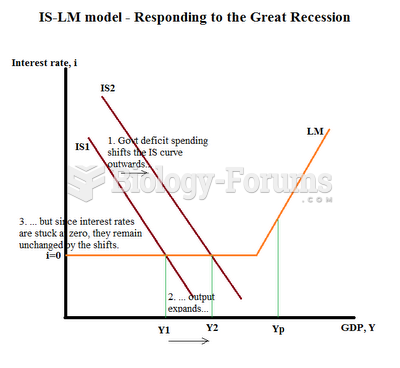|
|
|
Illness; diuretics; laxative abuse; hot weather; exercise; sweating; caffeine; alcoholic beverages; starvation diets; inadequate carbohydrate consumption; and diets high in protein, salt, or fiber can cause people to become dehydrated.
Everyone has one nostril that is larger than the other.
It is believed that humans initially contracted crabs from gorillas about 3 million years ago from either sleeping in gorilla nests or eating the apes.
Fatal fungal infections may be able to resist newer antifungal drugs. Globally, fungal infections are often fatal due to the lack of access to multiple antifungals, which may be required to be utilized in combination. Single antifungals may not be enough to stop a fungal infection from causing the death of a patient.
Parkinson's disease is both chronic and progressive. This means that it persists over a long period of time and that its symptoms grow worse over time.
 In 1948 the strongly Republican Chicago Daily Tribune printed its postelection headlines before all ...
In 1948 the strongly Republican Chicago Daily Tribune printed its postelection headlines before all ...
 Sociologists disagree about the relative significance of race and social class in determining social ...
Sociologists disagree about the relative significance of race and social class in determining social ...





